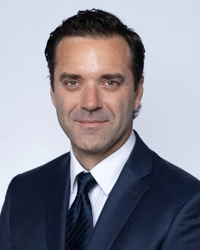Most professionals working within the California workers’ compensation system for any period of time are familiar with the fact asbestos claims may continue well beyond the usual five years after which the WCAB will typically lose jurisdiction.
What happens, though, if you have a case with a much more common post surgical infection? What if that infection is not currently affecting the applicant’s activities of daily living, are you on the hook for impairment? The Workers’ Compensation Appeals Board addressed this exact issue in the panel decision in Brian Gault v. Americana Vacation Clubs, 2018 Cal. Wrk. Comp. P.D. LEXIS 476.
The case involved an employee who sustained a right knee injury on his very first day at work. The injury was the last in a long line of knee issues and surgeries, including a total knee replacement in 2001 and a revision replacement in 2013. Dr. Tapper, the orthopedic QME, found impairment that the DEU rated to 3% after 95% apportionment to the prior knee problems.
Unfortunately, after his injury, the applicant required an emergency knee replacement and following the procedure he was diagnosed with an infection.
Dr. Bellinger, the internal medicine QME, found the infection to be 100% related to the most recent injury. The defendant did not object to Dr. Bellinger’s apportionment, but did take issue with Dr. Bellinger’s finding of Class II impairment under Table 8-2. According to the AMA Guides, this impairment rating required “skin disorder signs and symptoms present or intermittently present and limited performance of some activities of daily living (ADL) and may require intermittent to constant treatment.”
In supplemental reporting, Dr. Bellinger conceded that all ADL deficits were those found on an orthopedic basis by Dr. Tapper, none were related to the latent infection. Under deposition, Dr. Bellinger testified that the applicant was not currently suffering from any symptoms or deleterious effects due to chronic antibiotic therapy that were the basis of his impairment analysis but that he felt such effects were inevitable.
Thus the board framed the question as follows: did the applicant suffer any permanent disability from the injury due to his chronic infection and the resulting potentially lifelong antibiotic treatment required to cure or relieve the condition?
The board held that in the absence of any current impairment due to the infection a 3% PD award was appropriate. This was a nice discount from the 31% awarded by the trial judge.
This was a great outcome for the defendant, right? Well, sort of.
The award was characterized as “interim” and the commissioners then quickly analogized the applicant’s infection to other insidious, progressive diseases and the carve out from the five year limitation on WCAB jurisdiction created by the California Supreme Court in General Foundry Service v. Workers’ Comp. Appeals Bd. (Jackson)(1986) 42 Cal.3d 331 [51 Cal. Comp. Cases 375].
All of the medical evaluators in Jackson agreed that the asbestosis condition was progressive and not yet permanent and stationary. Similarly, Dr. Bellinger opined that the progression of Mr. Gault’s infection and the impairment that will result from the antibiotic therapy were not a question of “if” but “when.” The chronic infection was effectively not at MMI therefore the reservation of jurisdiction, and a potential future award, was appropriate. Similar reservations have been found to be appropriate in cases involving hepatitis C. City of Santa Rosa v. Workers’ Comp. Appeals Bd (Bertolucci)(2003) 68 Cal.Comp.Cases 248 (write den.).
It’s worth noting how limited this panel decision is.
Despite citing the Merriam Webster Dictionary definition of “progressive” disease as one which is “increasing in severity,” not all injuries that get worse over time qualify.
For example, a garden variety degenerative condition will not necessarily qualify.
In the case of Ruffin v. Olson Glass Co. 52 Cal. Comp. Cases 335, no reservation of jurisdiction was found for a degenerative knee and chronic lumbosacral strain, even though those conditions may continue to deteriorate, they are not an insidious progressive disease.
Even in cases involving post-surgical infection the takeaway of Gault is that the defense should insist that the QME explain exactly what potential future effects the infection is likely to have, how likely those effects are, and critically, whether those effects might continue to progress over a long enough period of time such that the WCAB will reserve jurisdiction.
We recommend researching the infection in question and asking the QME to comment on published medical literature whenever possible. If the opinion is still unfavorable, a well-researched and prepared deposition of the QME is going to be required.
In that case, and depending on the exposure, it may be worthwhile to consult with another physician who practices in the same specialty as part of your deposition preparation.
Ryan T. Alves is a partner and managing attorney at Bradford & Barthel’s Sacramento location. If you have any questions about the emergency regulations or any other workers’ compensation defense issues, please feel free to contact Ryan at ralves@bradfordbarthel.com or (916) 569-0790.
Viewing this website does not form an attorney/client relationship between you and Bradford & Barthel, LLP or any of its attorneys. This website is for informational purposes only and does not contain legal advice. Please do not act or refrain from acting based on anything you read on this site. This document is not a substitute for legal advice and may not address every factual scenario. If you have a legal question, we encourage you to contact your favorite Bradford & Barthel, LLP attorney to discuss the legal issues applicable to your unique case. No website is entirely secure, so please be cautious with information provided through the contact form or email. Do not assume confidentiality exists in anything you send through this website or email, until an attorney/client relationship is formed..


